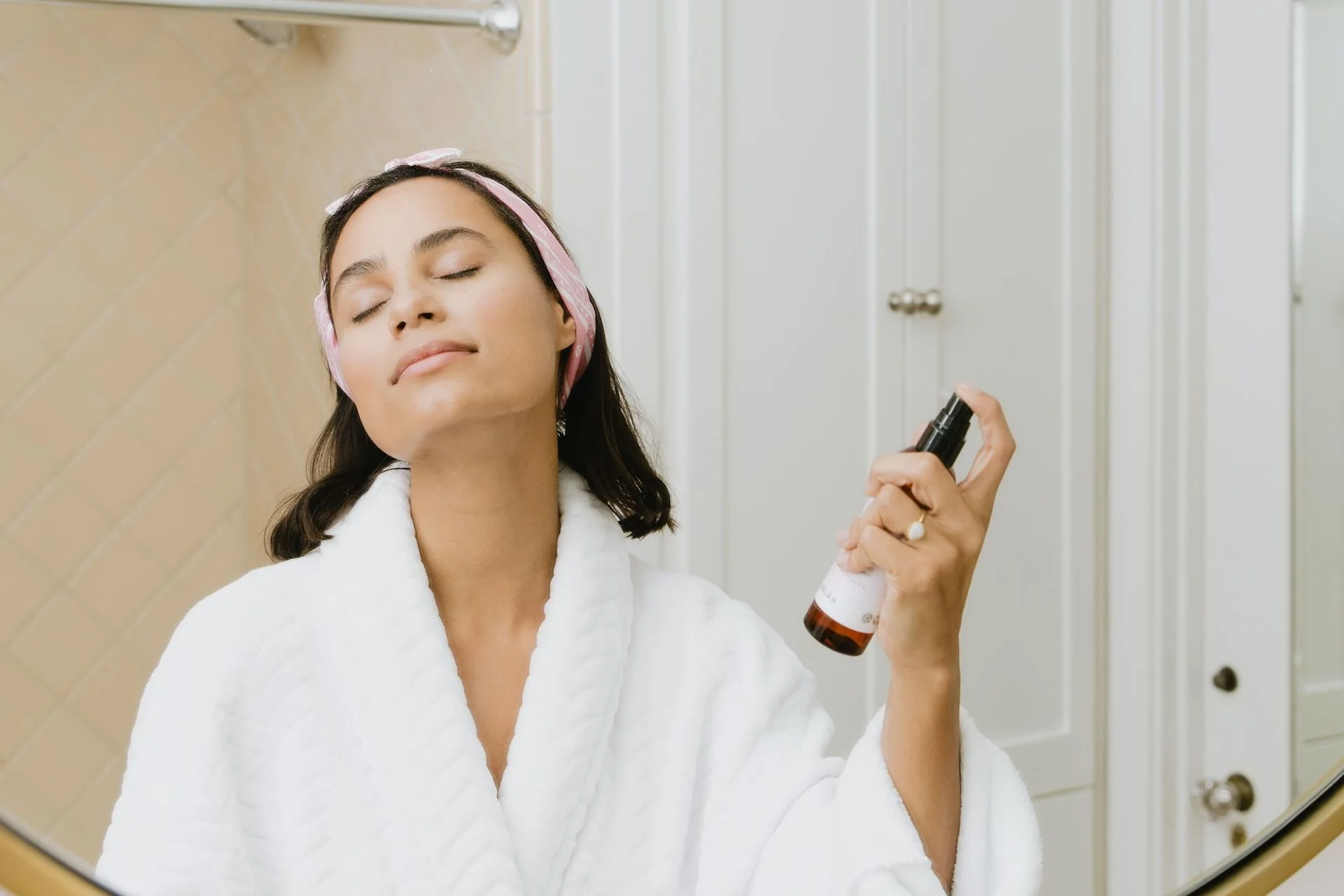Navigating the world of skincare can be overwhelming for beginners, with numerous products, routines, and conflicting advice. However, establishing a simple and effective skincare routine doesn’t have to be daunting. Let’s break it down into easy-to-follow steps to demystify skincare for beginners and help you build a personalized routine that works for your skin.
Understanding Your Skin Type
Normal Skin
- Balanced: Generally well-hydrated with minimal concerns. Few imperfections and fine pores.
Dry Skin
- Lacks Moisture: Feels tight, rough, or flaky. May experience dullness and irritation due to inadequate hydration.
Oily Skin
- Excess Sebum: Prone to shine, enlarged pores, and potential acne or blemishes due to increased oil production.
Combination Skin
- Mixed Traits: Combination of oily and dry areas. T-zone tends to be oily, while cheeks might be normal or dry.
Sensitive Skin
- Reactive: Prone to reactions like redness, itching, or burning. May react to certain ingredients or environmental factors.
Building a Simple Skincare Routine
Step 1: Cleansing
- Morning and Night: Cleanse your face twice daily with a gentle cleanser suited to your skin type to remove impurities and excess oil without stripping natural oils.
Step 2: Toning (Optional)
- Balancing: Use a toner if desired to rebalance pH levels and remove any remaining traces of dirt or makeup. Opt for alcohol-free formulas for sensitive skin.
Step 3: Moisturizing
- Hydration: Apply a suitable moisturizer to hydrate and protect your skin. Choose oil-free or lightweight formulas for oily skin and richer creams for dry skin.
Step 4: Sun Protection
- Non-Negotiable: Apply sunscreen daily, regardless of weather or indoor activities, to shield your skin from harmful UV rays. Choose SPF 30 or higher.
Customizing Your Routine
Targeted Treatments
- Specific Concerns: Incorporate treatments like serums or spot treatments to address particular concerns like acne, pigmentation, or anti-aging.
Weekly Treatments
- Exfoliation: Use gentle exfoliants or masks once or twice a week to remove dead skin cells, unclog pores, and reveal smoother skin.
Eye Care
- Delicate Area: Consider an eye cream to address concerns like dark circles, puffiness, or fine lines around the eyes.
Tips for Skincare Beginners
Patch Testing
- Safety First: Patch test new products on a small area of your skin to check for any adverse reactions before applying them to your face.
Gradual Introduction
- One at a Time: Introduce new products gradually into your routine to monitor how your skin reacts and to identify any potential triggers.
Consistency is Key
- Routine Maintenance: Stick to your skincare routine consistently to see results. Patience is essential; skincare takes time to show noticeable changes.
Ingredients to Look For
Hyaluronic Acid
- Hydration Booster: Attracts and retains moisture, keeping skin plump and hydrated.
Retinoids
- Anti-Aging: Encourages cell turnover, reducing wrinkles, and enhancing skin texture.
Vitamin C
- Brightening: Fades dark spots, evens skin tone, and boosts radiance.
Ingredients to Avoid
Fragrance and Alcohol
- Irritation: Fragrances and alcohol can cause irritation, especially for sensitive skin.
Parabens and Sulfates
- Potential Irritants: These ingredients can strip the skin and cause dryness or reactions in some individuals.
Conclusion
Embarking on a skincare journey as a beginner can seem complex, but it’s about understanding your skin’s needs and simplifying your routine. Start with the basics: cleanse, moisturize, and protect with sunscreen. As you become more comfortable, gradually incorporate targeted treatments based on your concerns. Remember, skincare is personal, so experiment to find what works best for your skin type and concerns. With consistency, patience, and a basic understanding of ingredients, you’ll pave the way for healthier, glowing skin.
